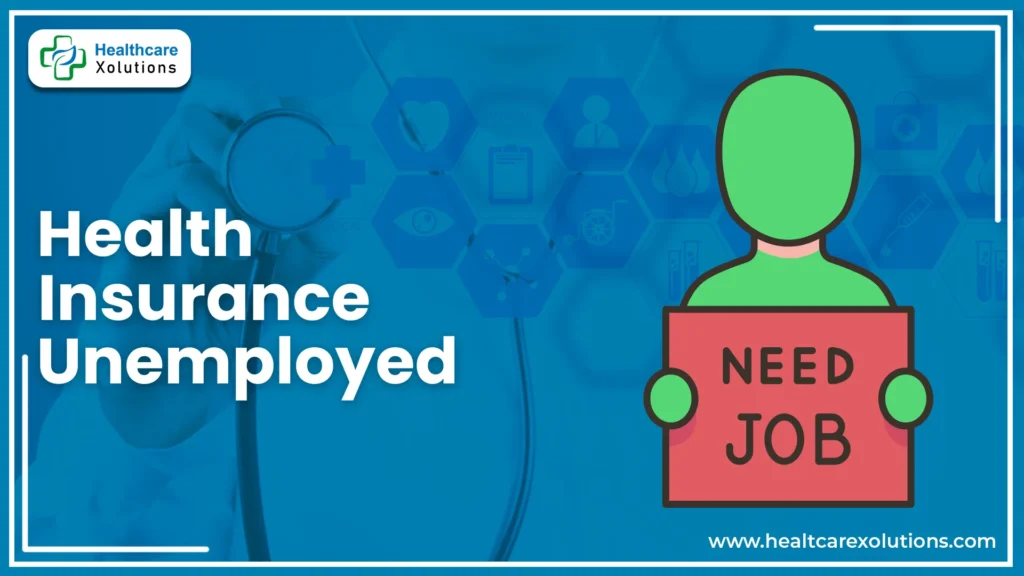How To Get Health Insurance When Unemployed | Complete Guide

Losing a job can be overwhelming, particularly when it comes to securing health insurance. In 2023, over 25 million Americans faced unemployment, creating a growing need for accessible healthcare solutions. This guide outlines how to get health insurance when you are unemployed, offering practical options for staying covered and maintaining your health.
From government programs like Medicaid to short-term plans, learn what works best for you.
Key Takeaways:
- COBRA: Retain employer-provided insurance for up to 18 months (costly option).
- Marketplace Plans: Access subsidized health insurance during special enrollment periods.
- Medicaid: Free or low-cost insurance for eligible low-income individuals.
- Short-Term Plans: Temporary solutions for gaps in coverage.
- Community Health Programs: Free or affordable care through nonprofits.
Table of Contents
How To Get Health Insurance When Unemployed:
1. COBRA Insurance For Unemployed:
COBRA allows continuation of your previous employer’s health insurance.
- Duration: Up to 18 months.
- Cost: Full premium payment required.
- Best for: Those with ongoing medical needs who want uninterrupted coverage.
2. Health Insurance Marketplace:
The ACA’s Marketplace provides flexible plans for unemployed individuals.
- Special Enrollment: Triggered by job loss.
- Subsidies: Income-based tax credits lower costs.
- Access: Visit HealthCare.gov or your state’s portal.
3. Medicaid For Low-Income Individuals:
Medicaid offers comprehensive coverage at little to no cost.
- Eligibility: Based on income and state guidelines.
- Benefits: Includes prescriptions, hospital care, and preventive services.
- How to Apply: Check your state’s Medicaid website.
4. Short-Term Health Insurance:
Ideal for temporary coverage until new employment begins.
- Limitations: Major medical coverage only, no preventive care.
- Costs: Generally lower premiums, but higher deductibles.
5. Family Insurance Plans:
Join your spouse’s or parent’s health plan for extended benefits.
- Eligibility: Under 26 for parent plans.
- Benefits: Comprehensive and cost-effective.
6. Community Health Programs:
Nonprofit organizations and health centers provide essential care for uninsured individuals.
- Services: Basic healthcare, preventive services, and vaccinations.
- Cost: Often free or low-cost based on income.
7. Freelancers’ Health Plans:
If freelancing during unemployment, consider group insurance plans for gig workers.
- Providers: Freelancer’s Union or trade-specific associations.
- Advantages: Group rates tailored to independent workers.
8. Private Health Insurance:
Directly purchase insurance from private providers for personalized coverage.
- Tools: Use comparison websites to evaluate options.
- Tips: Look for plans with affordable premiums and moderate deductibles.
Conclusion:
Being unemployed doesn’t mean you have to go without health insurance. Programs like COBRA, Medicaid, and the Marketplace ensure you have affordable options. Evaluate your financial situation, health needs, and coverage goals to find the best fit. Taking these steps will protect your health and provide stability during uncertain times.
FAQs:
Can i get health insurance without a job in the US?
Yes, options include COBRA, Medicaid, Marketplace plans, and community programs.
What is the best health insurance for unemployed individuals?
Medicaid is typically the most affordable, offering free or low-cost coverage.
Are short-term health insurance plans worth it?
They provide limited benefits and are suitable for temporary coverage needs.
I can’t afford health insurance and don’t qualify for Medicaid. What can I do?
Explore free community programs or nonprofit services for essential medical care.
